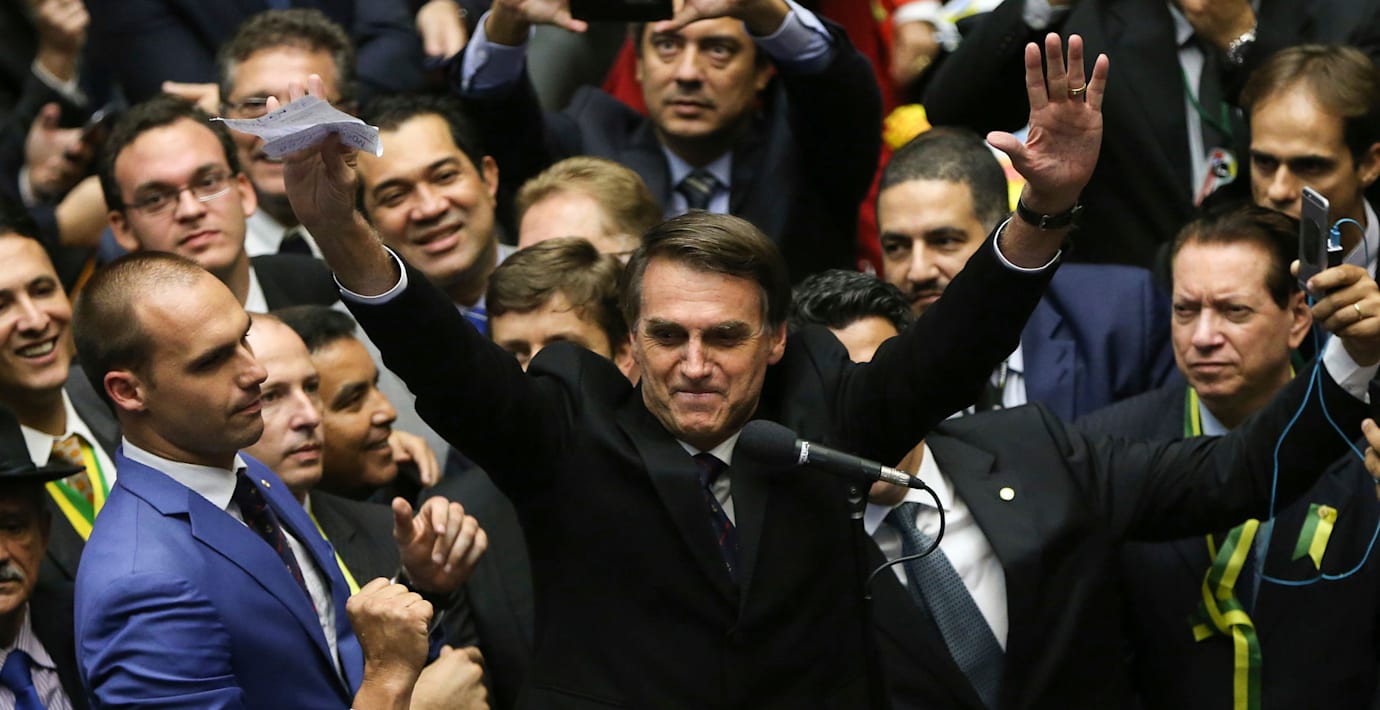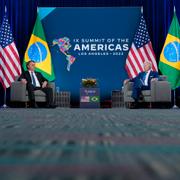
Analyser: Eliten rullar ut röda mattan för Bolsonaro
Många av Brasiliens medborgare oroas över att Jair Bolsonaro kan förstöra landets demokrati. Men näringslivseliten har rullat ut röda mattan för högerkandidaten inför söndagens presidentval, skriver Travis Waldron i en analys i Huffington Post.
Brasiliens ekonomi har kollapsat sedan det senaste valet 2014 och den nye presidenten och mittenpolitikern Michel Temer har inte lyckats vända utvecklingen. Det har fått näringslivet – som hyser starka antipatier mot arbetarpartiet PT – att vända sig längre högerut.
”Bolsonaro har mötts av hejarop från investerare och företagsledare”‚ skriver Waldron.
Bolsonaro har varit väldigt tydlig i frågan om lag och ordning och i sitt abortmotstånd. Men i frågor om ekonomisk politik har han varit mer svävande, skriver Mike LaSusa i en analys i Vox.
”Han har en vag plan för att banta ner utgifterna för sjukvård och utbildning”, skriver LaSusa men noterar att hans ekonomisk-politiske rådgivare Paulo Guedes är en marknadsliberal ideolog som vill privatisera statliga bolag och dra ner på offentliga utgifter.



